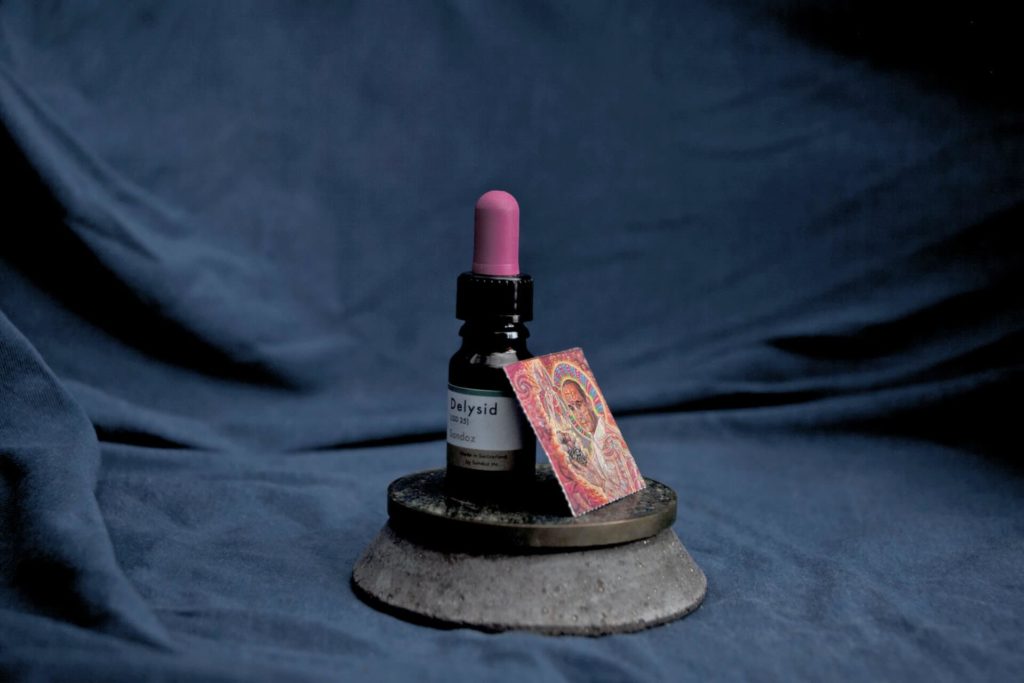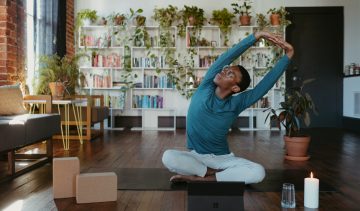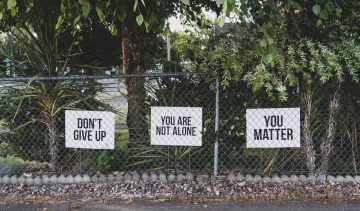You have probably heard of psychedelic drugs such as LSD or truffles. Maybe you know people who have used them, or maybe you have tried them yourself. Just like all drugs, there are risks to taking them. There is a reason they aren’t freely available for purchase at your local pharmacy! However, there is a renewed interest in psychedelics and a buzz surrounding microdosing with these drugs. It is therefore good to be informed about what we know about microdosing; what are the effects, the potential benefits and what are the risks for our mental health?
What is microdosing?
Microdosing refers to the regular intake of a very small amount of a psychedelic. This is usually LSD or Psilocybin (‘’Magic mushrooms’’/’’Truffles’’), but people also report trying other substances such as DMT, Mescaline & MDMA.
A normal dose of psychedelics can be an intense and profound experience, many people report spiritual like experiences. It can result in visual hallucinations, intense emotions, and changes in sensory feedback. A microdose however is usually only around 5-10% of a normal dose and therefore should not result in any ‘high’ or a ‘trip’. The intention of microdosing is so that we do not notice most of the effects and can go about our day as we normally would!
Silicon Valley
The microdosing trend has its roots in Silicon valley in America, the home of Google, Apple and Facebook. It was especially popular with computer programmers, who wanted to find a way to get ahead of the rest of the pack. They claimed that microdosing psychedelics would help them to be more productive, creative and happy at work. Even Steve Jobs himself claimed experimenting with LSD was one of the most important things he had done in his life.
Experiences
Many people that have tried microdosing, report that for them it results in various benefits such as improved mood, energy, concentration, productivity and creativity. Furthermore, microdosing may also provide benefits to our mental health. There are growing reports from users that microdosing helped alleviate their depression or anxiety and improved their mental well being.
A study in Psychopharmacology, which looked into the reasons why people were microdosing, found that many people were microdosing to help with depression, anxiety, substance abuse, as well as other mental health disorders. In fact 44% reported that their mental health had improved since microdosing.
How reliable are these experiences?
The majority of the information we have on microdosing comes from people’s experiences, and therefore the reliability of these reports is hard to make out. This makes it hard to determine what the actual effects of microdosing are, how it will affect someone as an individual and whether there is a placebo effect.
Research
Fortunately there has been some research on the use of psychedelics (‘normal’ dose) in a supervised clinical setting. This research was done to help people with mental health issues such as substance abuse, eating disorders, mood disorder, & PTSD (etc). The results are very promising, with some studies indicating long lasting positive effects. This research could hopefully help to inform future clinical treatment and medication.
Some research into the microdosing of psychedelics has also suggested a positive effect on our mental health. Researchers found that microdosing with DMT resulted in positive effects in mood and anxiety in rats. On the other hand, research by the Imperial College in London found no difference in the majority of long term effects between those who were microdosing and those who were taking a placebo, suggesting that it may be merely a placebo effect!
Unfortunately because many of these psychedelics are illegal and governments are reluctant to study them, research on microdosing is relatively scarce. A lot more work needs to be done before we can properly understand the effect microdosing has on our mental health, and whether it is actually safe.
Risks
Microdosing is not for everyone and there are risks to doing it. Many people who try it may find that the effects are unpleasant. Some people may be very sensitive to psychedelics and have bad experiences. So what are some of the risks?
- There are greater risks associated with psychedelics for those who have experienced or are experiencing mental health issues, such as anxiety, psychosis, schizophrenia or bi-polar disorder. It is strongly advised to avoid psychedelics if you are struggling with mental health issues.
- The majority of psychedelics are illegal. This means you can have trouble with the law if you are in the possession of some.
- The content of your substance is unregulated. You can never be sure as to what you are taking or how much, unless you get it tested.
- A ‘’bad trip’’ (unpleasant or a negative experience on psychedelics) can have serious consequences for your mental health.
- We are unsure of the long-term effects of microdosing.
- Effects can vary per individual, so you cannot rely on someone else’s experience.
We still have a lot to learn about microdosing and psychedelics and the effect they can have on our mental health. However, with further research there seems to be real potential for their future use in a supervised clinical setting to improve our mental health.
Help
This article is not intended to encourage the use of Psychedelics. Always stay informed of the risks involved and consult your professional when considering something that may impact your well-being. If you are struggling and need support, don’t hesitate to reach out for professional help. Would you like to know more about (online) help via NiceDay? Click here for more information.











